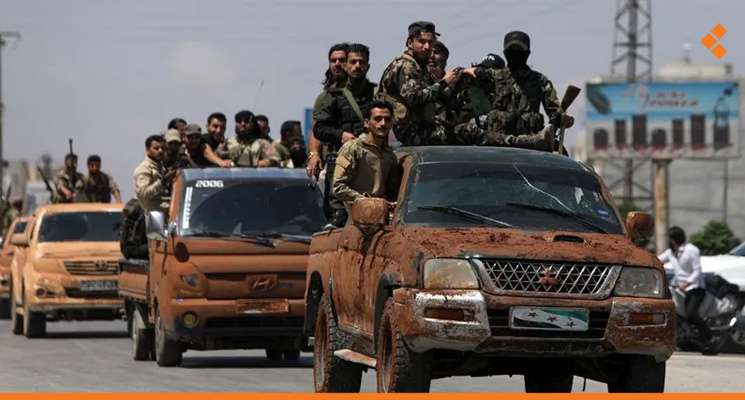The countryside of Aleppo’s northern fronts has experienced a prolonged period of complete calm, lasting approximately three weeks. During this time, factions affiliated with Ankara have not reported any new movements across the entire region, spanning from the western Afrin area to the eastern Jarablus area.
The prevailing tranquillity in northern Aleppo is unprecedented in recent years. The extended duration without any factional activity or attacks by Ankara’s factions towards the villages and towns south of the Afrin and Azaz areas is notable. Concurrently, these factions have been retreating from the areas under their control.
According to local sources in the Azaz region, the current calm in the north can be attributed to recent data and developments that have rapidly unfolded in relation to the Syrian state. This includes Syria’s reinstatement to its position in the Arab League and a noticeable shift in Turkish policies, which now appear focused on fostering closer relations with Syria.
Sources close to various faction leaders indicate that these Ankara faction leaders have become increasingly apprehensive about the significant risks posed by current international dynamics. They find themselves entangled in an uncertain future that threatens their presence in the north. These leaders have expressed their anxiety and apprehension about the ongoing events, while also expressing discontentment towards what they perceive as delayed international responses and inadequate support.
Based on Athr’s sources in the Afrin and Azaz regions, Ankara’s factions are focusing on two main objectives. First, they aim to manipulate public opinion within the areas under their control and coerce the people into participating in almost daily demonstrations against the new international positions. Over the past two weeks, we have already seen such demonstrations in Afrin, Azaz, and Al-Bab.
The second objective that has garnered significant attention from faction leaders is to generate substantial financial resources through various means, with a notable emphasis on the drug trade. Recent weeks have witnessed a surge in drug smuggling activities in the northern countryside of Aleppo, involving routes to and from Turkey as well as areas controlled by the Syrian Democratic Forces (SDF) in the east.
This upsurge in drug smuggling operations has led to significant conflicts and divisions among faction leaders. On multiple occasions, clashes have erupted due to disputes over smuggling routes and encroachment into other factions’ spheres of influence. Just three days ago, the Azaz area witnessed one of the most violent clashes near the village of Sajo, where several factions clashed over control of a key smuggling route towards the areas controlled by the SDF.
In addition to drug trafficking, faction leaders have resorted to the theft and smuggling of antiquities as a means of generating revenue. Recently, the Afrin region has witnessed an alarming surge in the frequency of theft and destruction of archaeological sites, orchestrated by these faction leaders. On a near-daily basis, they engage in bulldozing activities, plundering the contents of these sites, and selling them to Turkish antiquities dealers.
According to local sources in Afrin, at least eight archaeological sites have fallen victim to bulldozing and illicit excavations for antiquities. The prominent targets include the hills of Qastal Meekdad, Obaidan, and Kofija, as well as the vicinity of the Nabi Hori site. The factions responsible for these operations, particularly the “Army of Islam” and “Faylaq al-Sham” factions, have managed to extract significant quantities of gold jewelry and archaeological artifacts. These stolen items are promptly transported to Turkey, bypassing the customary process of being assembled in the factions’ military headquarters.
This article was translated and edited by The Syrian Observer. The Syrian Observer has not verified the content of this story. Responsibility for the information and views set out in this article lies entirely with the author.


